SUMMARY
This is AI generated summarization, which may have errors. For context, always refer to the full article.
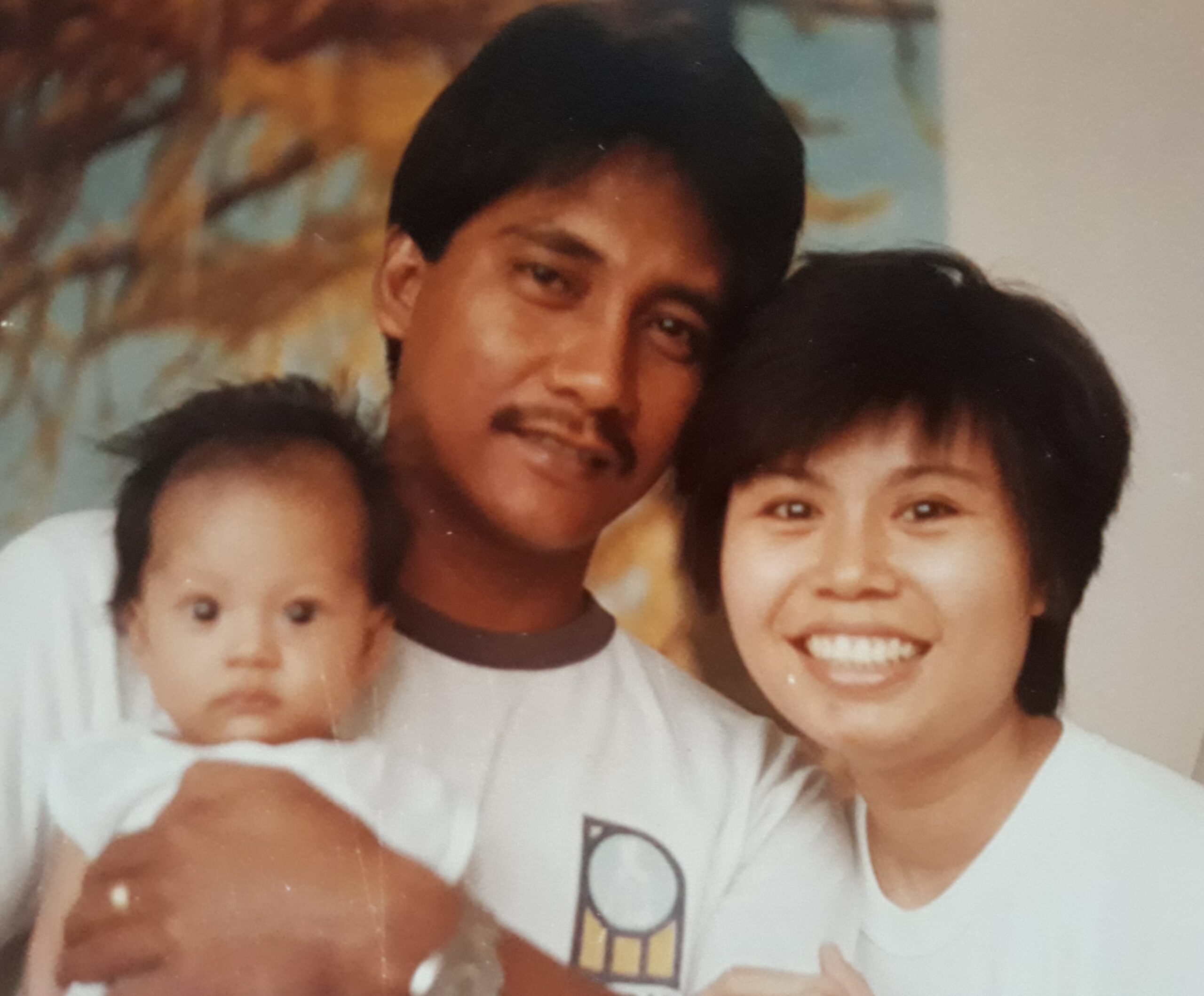
MANILA, Philippines – When Nona Andaya first met Ferdinand Castillo, it was love at first sight – even if, at that time, neither of them would admit that it was.
It was 1982. Nona was graduating from university and Ferdinand had just shifted to another course. Apart from their studies, there was also another, bigger priority.
“We were also busy with helping topple a dictatorship, so love was not a priority at that time,” Nona told Rappler.
Determined as they were — to topple a dictatorship and to resist romance — love managed to find a way.
Over 30 years later, their work is far from over. Ferdinand was arrested on February 12, 2017 for murder, frustrated murder, and illegal possession of firearms – charges which Nona, Ferdinand, and human rights defenders say are trumped up. The allegations against Ferdinand, branded a “high-ranking member” of the New People’s Army by police and military, are what many activists face upon arrest.
Ferdinand, a vegetarian, remains in jail with a long list of pre-existing illnesses – his condition made more precarious because of the COVID-19 pandemic. He is one of many activists in jail over unclear, sometimes flimsy charges.
Still, Nona manages to find hope — that one day, they’d reunite to “spend their senior years in peace and health.” She wants nothing more than for her and Ferdinand, whom she credits for saving her life, to “do what [they] love best — to serve [their] country as true iskolar ng bayan (scholars of the nation).”
(Note: Some responses have been shortened.)
RAPPLER: How did you and your husband meet? Was it love at first sight?
We both admitted to each other that it was love at first sight much, much later. When we met, it was not easy to shake off our determination not to get into a relationship due to our personal circumstances (I was busy with my academic requirements because I was about to graduate from college, and he shifted to another course). We were also busy with helping topple a dictatorship, so love was not a priority at that time.
RAPPLER: Was there a singular moment when you knew you’d be marrying Ferdinand? Or was it a realization that was built through time?
I am always surrounded by nuns. I was raised in a religious Catholic family and since childhood, my godmother aunt who is my second mother inspired me to be a nun like her. I also spent my formative years in a Catholic school and dreamt of being one of the nuns like my teachers. So when we celebrated our second anniversary as sweethearts as well as his 25th birthday and he proposed to me, I turned down his proposal. I was only 22! I found myself too young to get into something as serious as marriage at that time.
We continued to work with the nuns and priests of the Diocese of Isabela’s Social Action Center for two more years. When some nuns who are members of the Rural Missionaries of the Philippines invited me to join their search-in (a process of recruiting young women into their congregation), that was the time that I realized that I already wanted to marry Ferdinand. The problem was, he never mentioned marriage again after that incident when I refused his proposal! He was afraid of another rejection. When we celebrated our fourth anniversary, I asked him when he was planning to get married. We immediately decided on a date in December 1986, but due to his father’s schedule as an OFW, we decided to marry in May 1987.
RAPPLER: Can you describe to us what was happening around you when Ferdinand first started dating?
Ferdinand founded a human rights organization in 1984 – an especially dangerous year for anyone working for democracy and human rights.
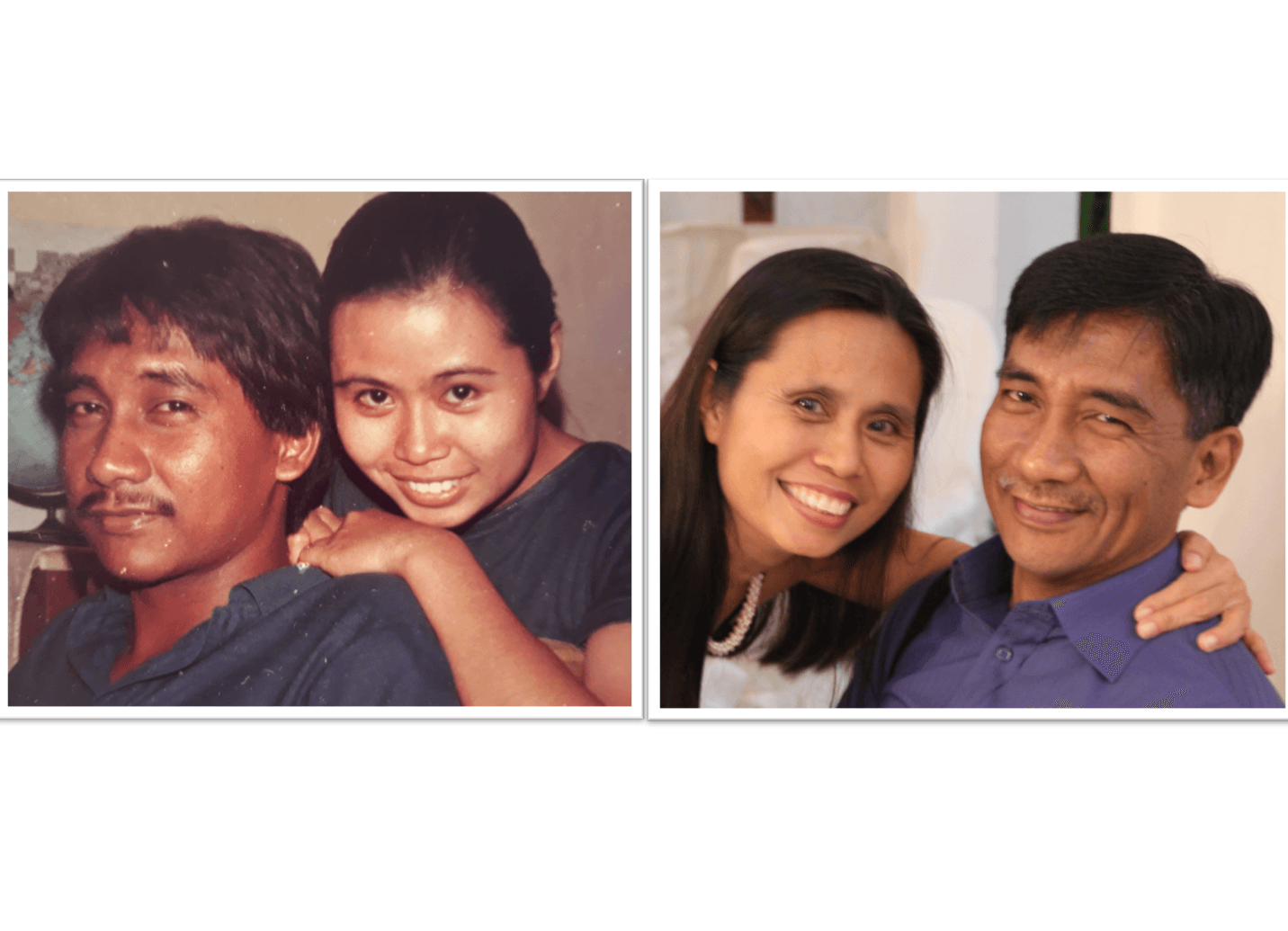
RAPPLER: How did you human rights work affect your relationship?
When one is young, “grim and determined,” the danger of our work did not deter us. Even if we get water-cannoned and tear-gassed in a rally, we still attend the next one, bringing more participants with us. We instituted several security measures like being on time when we meet each other, checking on each other’s situation, and sending letters through friends when he went to Cagayan Valley ahead of me. Mobile phones and email were not available but despite that limitation, we were able to keep in touch.
We had to survive on meager allowance as student activists and later on as human rights defenders, so we were always short on money. We only dated once in a restaurant and usually ate at UP cafeterias with our fellow activists, or feast on banana (turon) and vegetable spring rolls. We only watched movies twice or thrice with our common friends. Our usual dates were attending rallies and taking long walks along the UP Oval. He brought me home from my theater rehearsals and visited me during weekends and semestral breaks. Many times he had to walk for several kilometers because 24/7 transportation was not available from our house to his destination. I also went to his house and pretended to like Ilokano vegetables dishes that his mother prepared. Looking back, I teased him that he missed the opportunity of dating me at the UP Lagoon, a popular tryst of lovers.
In 1984, Ferdinand went back to his region to help form the Cagayan Valley Human Rights Organization. The situation there was briefly described in the fifth paragraph onwards in this article about Bishop Miguel Purruganan, the Diocesan Social Action Center and the different religious organizations in Isabela.
After a year, I joined Ferdinand as a Lay Assistant of the Rural Missionaries of the Philippines. We also supported peasants in their fight against usury, low prices of agricultural produce and inputs, especially the farmers at Hacienda Santa Isabela and San Antonio. During the 1986 snap elections, we campaigned against massive electoral fraud in Isabela where the Diocese of Ilagan and other religious congregations bravely took the lead despite harassments of Marcos supporters.
After EDSA, there were several rallies in different towns and it led to a Sakbayan, a caravan of peasants and their supporters to ensure that their issues will be tackled in the peace talks between the Cory Aquino government and the National Democratic Front. Sadly, many harassments still continued even after the Marcos downfall.
RAPPLER: Can you describe your Bulacan wedding to us?
There are many Filipino wedding superstitions and one of these beliefs is that the life of a couple who are about to get married is in constant danger. Our parents and other relatives were very worried that we were traveling long-distances as the wedding day drew near. Of course, if a couple had the courage to fight a dictator, myths like these didn’t mean anything to us.
We hardly had time to prepare for our wedding. We were very busy campaigning for Partido Ng Bayan for the 1987 election. We decided to have our wedding in Meycauayan Church but we had to be in Isabela for an extended period of time due to campaign activities. I didn’t even have time to finalize the design of my wedding dress and other important details of our wedding. I even got late because I had a problem with the car that took me to the church. We ended up harassed on the wedding day itself and I started to feel feverish during the wedding reception. But we took time in writing a missal and carefully wrote our vows to be loyal to each other as we continue to serve our people. We also chose nationalist songs for the mass sung by our friends. Our Baguio honeymoon was postponed because I was hospitalized for a week due to kidney infection.
RAPPLER: How do you think the Marcos years and your work in human rights helped shape how you grew as individuals and as a couple?
In 1991, I decided to work with Plan International and other NGOs that are different in nature with our common advocacy. I finally chose to dedicate my time to promote and protect maternal and child health in 1997. It became a problem not just with juggling of our schedules, but it diverged from our expectation of each other. I was hoping Ferdinand would choose to teach in UP after we went back to study and finished our degrees one after another in 1995 to 1997. Instead, Ferdinand chose to remain with the human rights advocacy and worked for Bagong Alyansang Makabayan-NCR, a staunch critic of President Gloria Macapagal-Arroyo (PGMA), while I worked as her Presidential Consultant on Infant and Young Child Feeding.
But being human rights advocates, we are always conscious to respect our individual choices and to be proud of the niche we created in our own fields. He is also respectful of my choices and my stand on issues that I usually express with passion. We had our own share of heated arguments and during these occasions, he would smile and ask gently if I am quarreling with him. That never fails to douse my temperament.
RAPPLER: Nearly 30 years later, it’s still dangerous to be a human rights defender. What was going through your mind when Ferdinand was detained in 2017?
Aside from the specter of long imprisonment or murder, I was scared that he might suffer that same fate similar to his six male first cousins who died of heart attacks in their 40s. I had to cut short my US trip and go back to our country to take care of his needs, put his diet and other health habits back on track. A well-respected cardiologist prescribed him with six medicines, but his blood pressure remained at a dangerous level. I had to consult a lifestyle medicine doctor and a vegan cardiologist to get him off his medicines because he suffered from bloody stools. His blood pressure remained stable but we have to ensure very strict health habits that can be challenging inside prison. The anxiety and rigors of buying and transporting his food and other needs took a toll on my health, too. I had a rotator cuff injury and suffered from over-fatigue with severe dehydration last 2109.
When Senator Leila de Lima was jailed 12 days after my husband’s arrest, I was devastated. If this administration can jail a senator for flimsy reasons, I know they can do that to ordinary citizens as well. He is now jailed for four years, despite the fact that he was not convicted of all the outrageous criminal cases, namely illegal possession of firearms and murder and attempted murder filed against him. In October of 2017, a fellow inmate was released after seven years in prison. All the false charges against him were dismissed. We were very happy for his fellow detainee but at the same time, a question lingers in our mind. Will he stay in jail longer?
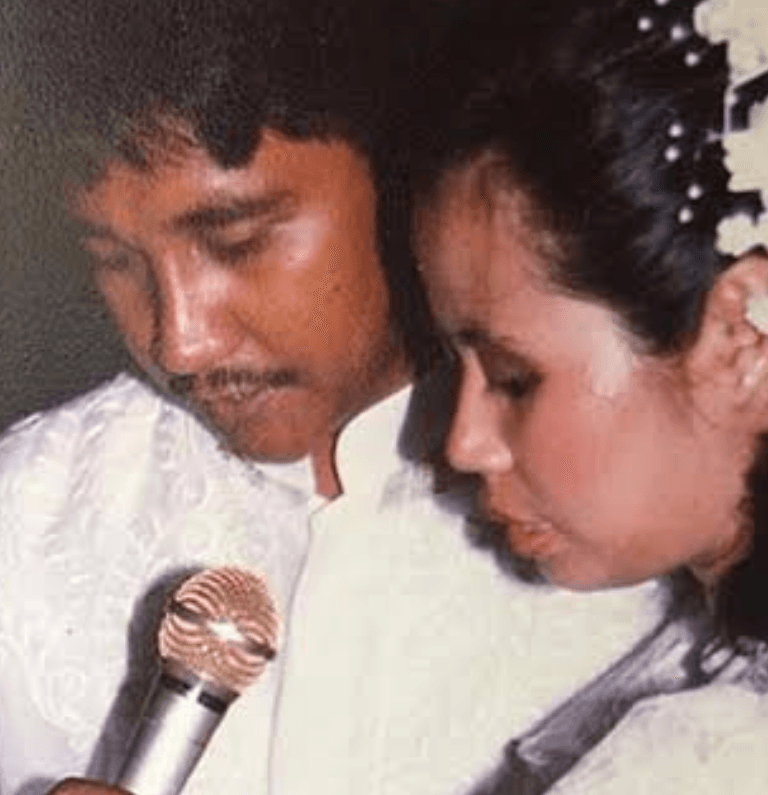
RAPPLER: Have you been able to communicate or visit him during the pandemic? Has his case moved before the courts at all since? (Note: This interview took place in early 2021)
We exchange letters and I send his needs through a drop-off point every week so he can sustain his plant-based diet inside the prison. The last time I visited him was March 15, 2020, that day that the lockdown was enforced. Since the lockdown, he already had two hearings on his case on the illegal possession of firearms but his lawyers’ motion to dismiss his murder and attempted murder cases are still pending in another court since May 2017.
RAPPLER: You survived difficult times in the ’80s. You’ve had to survive another difficult period since 2017. For some, it might be impossible to imagine love when the world is crumbling around you. What made (and still makes) you believe in love despite difficult times?
The desire to love and serve our country albeit in different ways binds us together and develops the value of simple living. Most importantly, we remain faithful to each other despite several instances that we are apart, like travels abroad or during conferences and training we attend around the country. We also make sure we spend time with our daughter especially during special occasions and year-end trips.
We both agreed at this point that he saved my life by teaching me how to eat vegetables, and I also saved his life because I got him into a vegan diet. We find very simple ways (many times cheap) ways on how to show our love for each other. We are hoping that we will be together soon, spending our senior years in peace and health while we continue to do what we love best – to serve our country as true iskolar ng bayan. – Rappler.com
Note: This is one of many stories from couples who met, fell in love, and worked on that love during the most trying times in Philippine history. Last year, we featured Dina and Butch Abad’s story. You can read it here.
Add a comment
How does this make you feel?
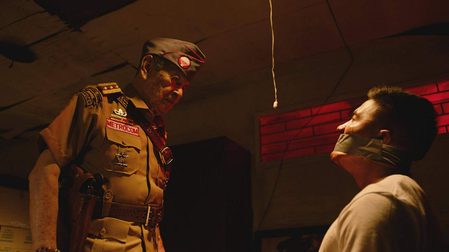
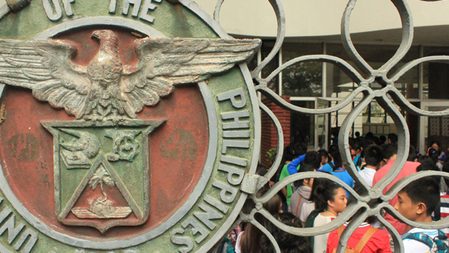
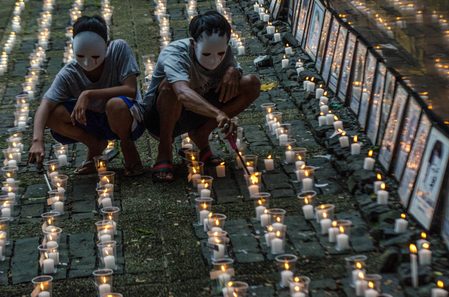
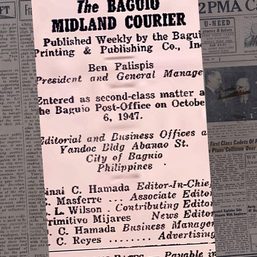
![[OPINION] Raised on radio](https://www.rappler.com/tachyon/2024/04/raised-on-radio.jpg?resize=257%2C257&crop=396px%2C0px%2C720px%2C720px)
![[Just Saying] Marcos: A flat response, a missed opportunity](https://www.rappler.com/tachyon/2024/04/tl-marcos-flat-response-april-16-2024.jpg?resize=257%2C257&crop=277px%2C0px%2C720px%2C720px)
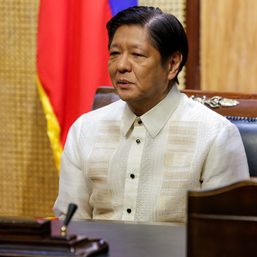

There are no comments yet. Add your comment to start the conversation.